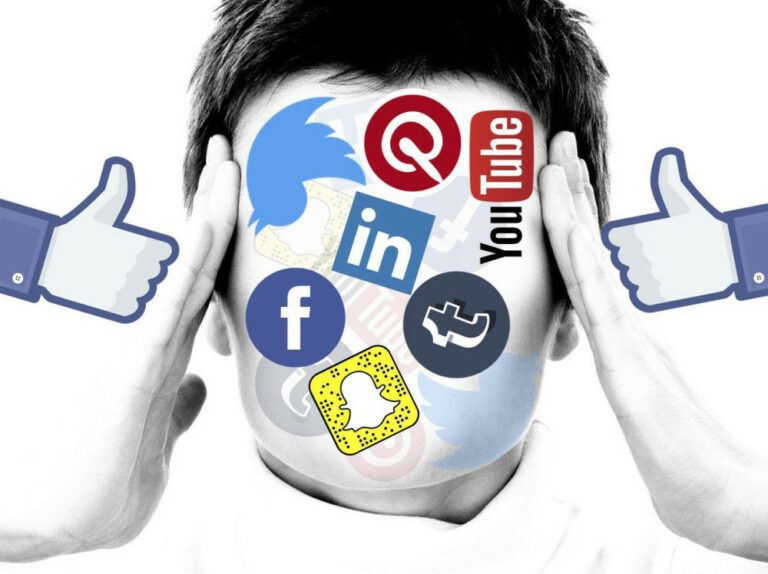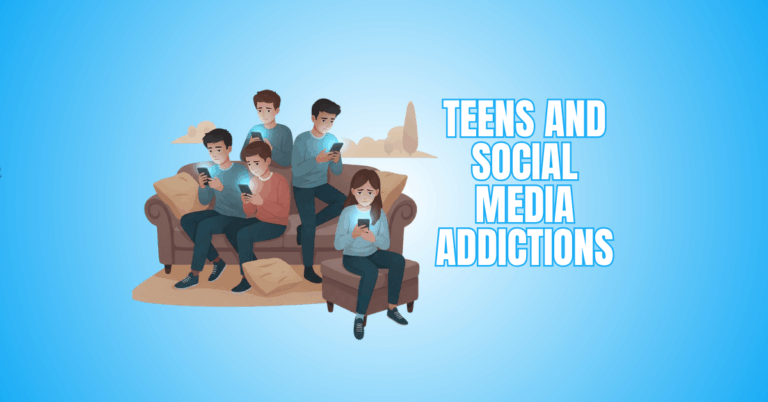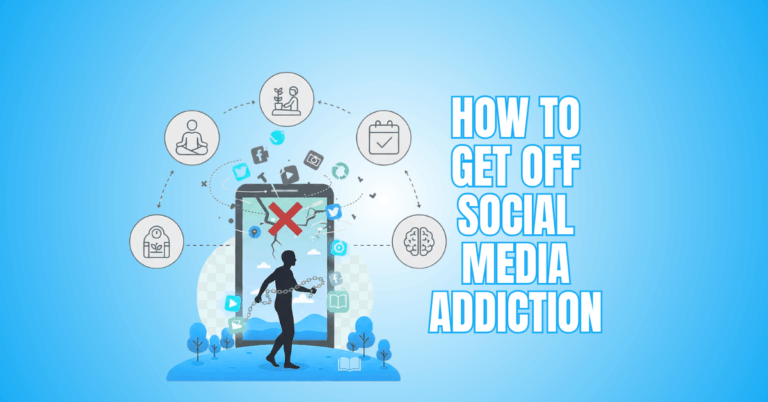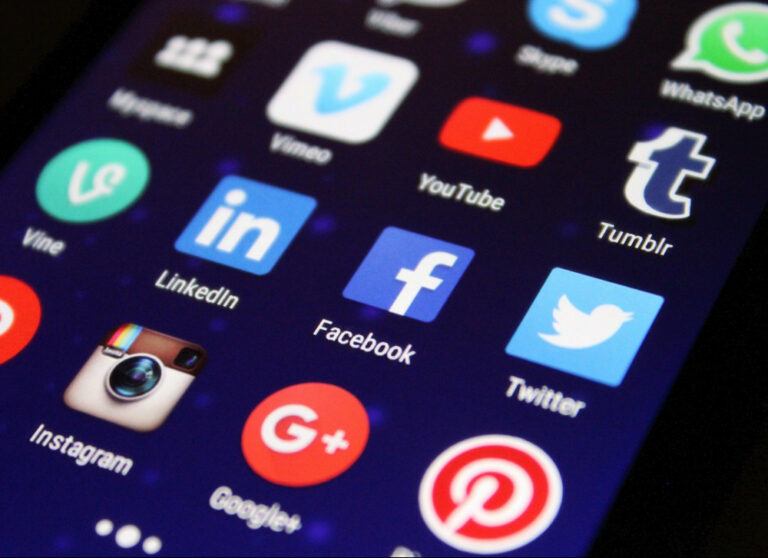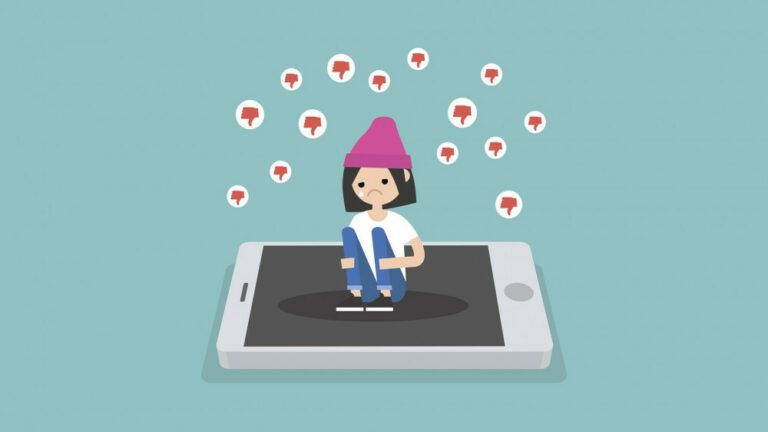Social Media And Eating Disorders
Social Media And Eating Disorders
Social Media and Eating Disorders are intricately linked in today's digital age, where platforms shape perceptions of beauty and self-worth.
The pervasive presence of curated, idealized images often fuels insecurities, leading to body dissatisfaction and disordered eating behaviours.
This article will explain the profound impact of social media on individuals' mental health, shedding light on its role in both exacerbating and addressing eating disorders and emphasizing the need for awareness and responsible engagement.
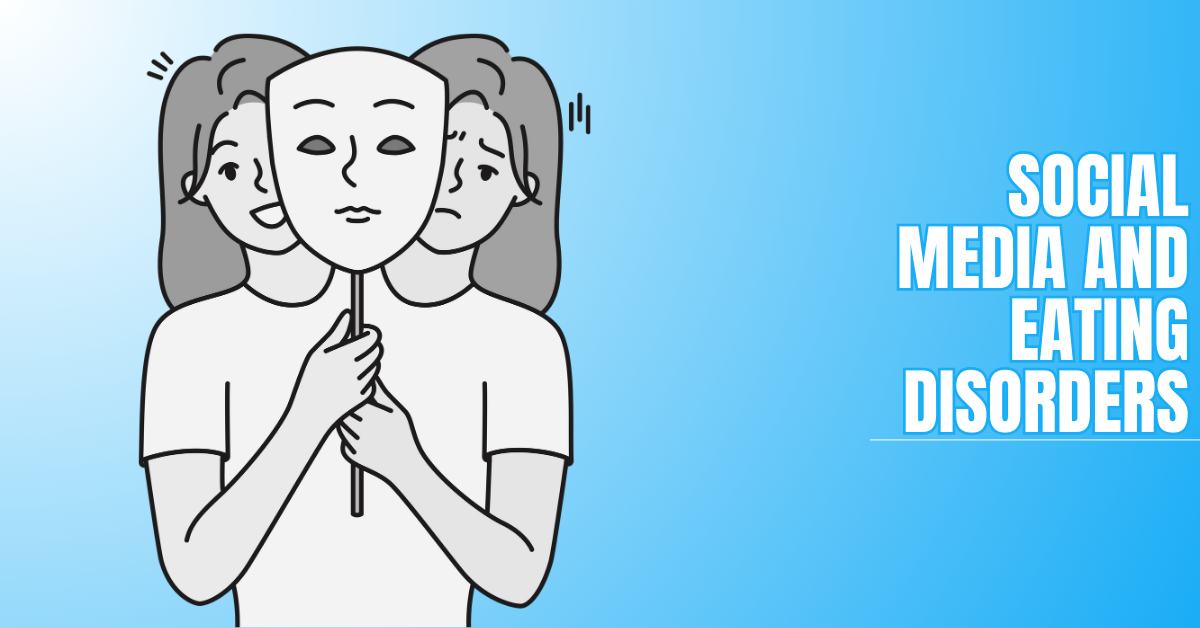
Understanding Eating Disorders
Eating disorders are complicated mental illnesses that affect people's physical and emotional well-being. Often, there is an unhealthy relationship with food, body image, and self-esteem.
Common types include binge-eating disorder, bulimia nervosa, and anorexia nervosa. These disorders can lead to severe health consequences if left untreated, such as malnutrition, organ damage, or psychological distress.
Causes are multifaceted, including genetic, psychological, and societal factors.
Early intervention is crucial for recovery when dealing with social media and eating disorders. Seeking support from healthcare professionals, therapists, and support groups can help individuals regain control and develop a healthier mindset toward food and body image. Awareness fosters understanding and compassion.
Types Of Eating Disorders Impacted By Social Media
Social media dramatically influences eating behaviours and body image, often intensifying concerns. Eating problems may arise as a result of it. Below are some of the main types of eating disorders impacted by social media:

1. Anorexia Nervosa
A disorder marked by excessive dietary restriction, extreme worry about gaining weight, and a distorted body image.
Social media perpetuates unrealistic beauty standards and “thinspiration” content, pressuring individuals into harmful weight-loss behaviours.
Filters and curated images further promote unattainable ideals, intensifying body dissatisfaction. This exacerbates body dissatisfaction and restrictive eating.
2. Bulimia Nervosa
Cycles of purging with laxatives, vomiting, or intense exercise, followed by binge eating. Social media's promotion of diet culture, weight-loss hacks, and extreme fitness routines can normalize compensatory behaviours, reinforcing harmful cycles and encouraging individuals to pursue unrealistic goals at the cost of their health.

3. Binge Eating Disorder (BED)
This is marked by recurrent episodes of consuming excessive food with feelings of guilt or loss of control.
Social media’s food-centric content, such as “mukbang” videos or aggressive weight-loss ads, can act as triggers, intensifying emotional distress and exacerbating binge eating tendencies.
4. Orthorexia
Orthorexia is a severe form of clean eating preoccupation. Social media’s wellness trends and unregulated advice can create anxiety over dietary “perfection,” encouraging obsessive behaviours.
This often leads to rigid eating patterns, negatively impacting mental health and fostering an unhealthy relationship with food.
5. Body Dysmorphic Disorder (BDD)
Preoccupation with perceived flaws in appearance is often accompanied by disordered eating.
Social media’s filtered images and comparison to curated online personas can magnify self-criticism, driving individuals to adopt restrictive diets or other unhealthy practices in pursuit of an impossible ideal.
Want to Start Making Money Online?
Try My #1 Recommendation Program!
6. Avoidant/Restrictive Food Intake Disorder (ARFID)
A condition involving restricted eating due to sensory sensitivities or fear of adverse reactions like choking. Social media posts highlighting food contamination, allergens, or harmful ingredients can heighten fears, encourage avoidance and restriction, and worsen nutritional deficiencies.
7. Emotional Eating
Using food, frequently under the influence of other influences, as a coping mechanism for stress, grief, or boredom. Social media's depiction of idealized lifestyles and “perfect” meals can heighten feelings of inadequacy.
This often drives individuals to overeat as a coping mechanism for managing negative emotions and addressing perceived personal shortcomings, reinforcing an unhealthy cycle of emotional eating.
Impact Of Social Media On Eating Disorders
The influence of different social media on eating disorders is a complex issue that intertwines the benefits and harms of digital platforms. Here's an overview of the effects of social media and eating disorders:
Negative Impacts
1. Unrealistic Beauty Standards
Social media heavily perpetuates unattainable beauty ideals using filters, curated photos, and fitness influencers. This relentless portrayal of perfection fosters body dissatisfaction, undermining self-esteem and fueling eating disorders as individuals strive to meet these unachievable standards of appearance and physique.

2. Comparison Culture
Platforms like Instagram and TikTok promote constant comparison to others' lives and appearances. This culture of comparison heightens feelings of inadequacy, driving people toward unhealthy practices like restrictive eating, overexercising, or obsessing over physical attributes to match perceived societal norms.
3. Pro-Eating Disorder Content
Hashtags like #thinspiration and #proana foster communities glorifying disordered eating behaviours. Vulnerable individuals can be drawn deeper into unhealthy patterns through exposure to this content, normalizing practices that severely impact mental and physical health and worsen existing conditions.
4. Cyberbullying
Negative comments and body shaming on social media severely damage self-worth, leaving lasting emotional scars. For those already insecure about their appearance, such cyberbullying can trigger or worsen eating disorders, creating a vicious cycle of self-doubt and harmful coping mechanisms.
Want to Find Out How To Start Your Home-Based Business?
Try My #1 Recommendation Platform!
5. Overemphasis On “Clean Eating”
The wellness trend promoting “clean eating” often demonizes specific foods, sparking anxiety around diet choices. This fixation can lead to orthorexia, where an obsession with eating only “pure” foods disrupts mental health and encourages disordered eating patterns disguised as healthy habits.
6. Triggering Content
Social media often showcases extreme weight loss transformations or restrictive meal plans as aspirational. For individuals with or at risk of eating disorders, these posts act as triggers, reinforcing unhealthy behaviours, distorted self-image, and harmful perceptions about health and beauty.
7. Obsession With Metrics
The emphasis on likes, comments, and follower counts creates a feedback loop where individuals equate self-worth with online approval.
This obsession can drive disordered behaviours, such as extreme dieting. Low engagement can exacerbate feelings of inadequacy, heightening anxiety and compounding negative body image.

8. Overexposure To Diet Culture
Influencers promoting fad diets or “miracle” weight loss solutions normalize disordered eating disguised as self-care. Often unsupported by science, these trends encourage restrictive or harmful dietary habits, worsening health and undermining recovery efforts. Vulnerable users may internalize these practices as necessary for acceptance or success.
9. Isolation From Real-Life Support
Excessive reliance on social media for connection can detract from in-person relationships. This isolation limits access to real-life emotional support, making it harder to recognize and address disordered eating patterns. Virtual interactions may provide validation but lack the depth and accountability necessary for recovery.
Are You Tired Of Scams?
Want to Start Making Money Online?
10. Misinformation Spread
Social media's unregulated environment allows pseudoscience about health and nutrition to proliferate. Users may follow damaging advice, such as extreme calorie restrictions or detoxes, under the guise of health improvement. This misinformation not only exacerbates eating disorders but also delays appropriate professional intervention.
11. Normalization Of Body Modification Trends
Social media often glorifies trends like extreme weight loss surgeries, waist training, or appetite suppressants. Presented as quick fixes, these trends create unrealistic expectations, pushing individuals toward harmful body modification measures without considering long-term physical or psychological consequences, worsening the risk of eating disorders.
![]()
12. Addiction To Fitness Tracking Apps
Social media often promotes fitness apps emphasizing calorie counting and exercise metrics. While motivational for some, they foster unhealthy obsessions by monitoring diet and exercise.
This compulsiveness can escalate into disordered eating or exercise addiction, reinforcing harmful habits and negatively impacting mental and physical health.
13. Social Media And Adolescent Self-Image
Adolescents, still forming their self-image, are highly vulnerable to social media's harmful effects. Filtered images and validation through likes or comments reinforce negative self-perceptions.
Early exposure to such content can increase eating disorder risks, making long-term recovery more challenging and impacting mental health into adulthood.
Positive Impacts
1. Support Communities
Social media enables recovery groups to thrive, offering spaces where individuals share struggles and provide mutual support.
These communities provide support, encouragement, and a sense of belonging, promoting healing and empowerment. They help participants feel connected and less alone as they work toward better mental and physical well-being.
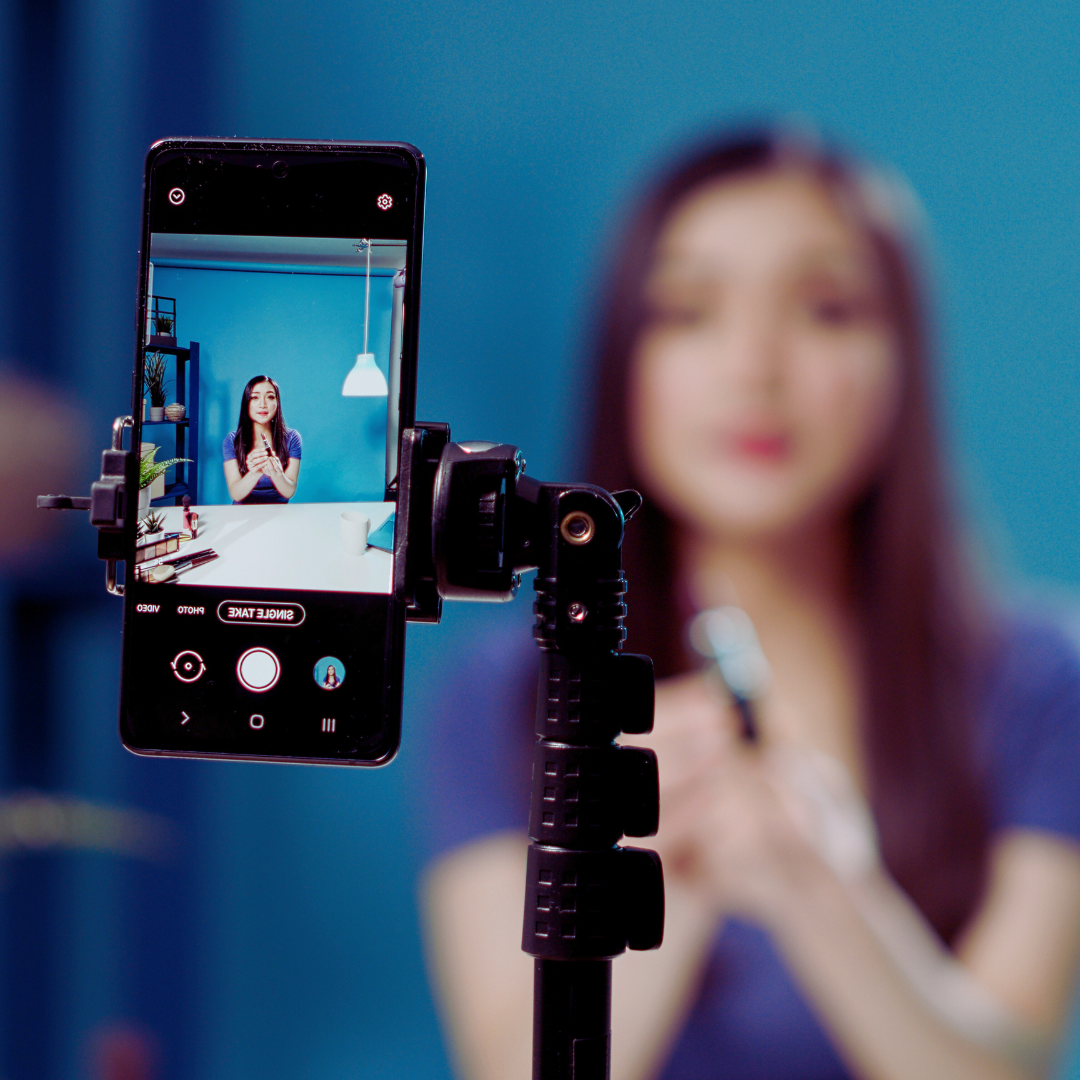
2. Educational Content
Accounts led by professionals like dietitians and therapists promote body positivity, intuitive eating, and the rejection of harmful diet culture.
This educational content helps followers adopt healthier relationships with food and body image, countering the damaging effects of unrealistic beauty standards.
3. Advocacy Movements
Movements like #BodyPositivity and #SelfLove use social media to champion body acceptance and diversity. By challenging harmful narratives, these campaigns inspire confidence, self-worth, and inclusivity, fostering a culture that celebrates individuality over unattainable societal ideals.
4. Access To Professional Resources
Social media bridges the gap between individuals and specialized support, providing access to virtual therapy sessions, helplines, workshops, and evidence-based advice, enabling access to specialized care.
This accessibility ensures timely intervention, especially for those in remote areas or with limited traditional healthcare options.
Want To Learn How To Create Your Own Website And Online Business?
Try My #1 Recommendation Training And Hosting Platform!
5. Recovery Inspiration
Personal success stories of overcoming eating disorders shared on social media inspire hope and resilience, motivating individuals to seek help.
These narratives highlight the possibilities of recovery, offering guidance and encouragement for others to embark on their healing journeys with renewed motivation and self-belief.
6. Awareness Campaigns
Social media platforms amplify awareness campaigns that demystify eating disorders, sparking public discourse, reducing stigma, and normalizing conversations.
Greater awareness fosters early intervention, motivates people to seek support without worrying about being judged or misunderstood, and builds a collective understanding of these complex conditions.

7. Mindful Eating Trends
Influencers and professionals advocating mindful eating practices encourage individuals to focus on nourishment, enjoyment, and balance rather than restrictive diets.
This trend shifts focus from diet culture to healthier habits, promoting a positive relationship with food while reducing guilt and disordered eating behaviours related to social media and eating disorders.
8. Creative Outlets
Social media platforms let individuals describe their experiences and communicate their feelings through writing, art, or photography.
Sharing their creative works allows for therapeutic self-expression, helping individuals process their struggles with eating disorders, connect with others, and feel empowered in their journey toward recovery.
9. Real-Body Representation
Social media promotes realistic body images, showcasing diversity in shapes, sizes, and abilities. This representation counters harmful ideals, fostering self-acceptance and challenging societal pressures to conform.
It ultimately encourages healthier self-esteem and body positivity. It helps normalize body diversity, encouraging healthier self-perception and reducing shame or self-criticism.
10. Peer Accountability
Social media support networks often foster accountability by encouraging members to share goals, progress, and challenges.
This shared commitment motivates individuals to stay on track with treatment plans and recovery goals, promoting mutual responsibility and reinforcing positive behaviours over time.
11. Decreased Isolation
Social media reduces feelings of isolation by providing connection and support, particularly for individuals in areas without local resources.
Virtual interactions offer emotional reassurance and companionship, making users feel less alone in their struggles, thus fostering a sense of community and belonging during recovery.

12. Promotion Of Holistic Health
Holistic health content on social media highlights overall well-being, emphasizing physical, emotional, and mental health.
These platforms promote balanced lifestyles, encouraging practices like yoga, meditation, and balanced nutrition. This shift helps individuals view health as multi-dimensional, reducing fixation on physical appearance.
13. Positive Role Models
Social media influencers who share authentic, unfiltered content about their bodies inspire confidence and authenticity.
These role models challenge perfection standards and encourage self-love, helping individuals appreciate their uniqueness. By modelling realistic beauty, they foster self-acceptance and counteract harmful societal ideals.
14. Encouragement of Media Literacy
Social media raises awareness about filters, photo editing, and curated content. Promoting media literacy helps individuals recognize unrealistic portrayals, reducing their influence on body image.
Understanding these manipulations empowers users to critique harmful content and prioritize self-worth over online comparisons.
Positive Uses Of Social Media In Recovery
Social media may be a powerful tool in the recovery process, providing support, education, and a sense of community. Here are some positive uses of social media in recovery:
1. Support Networks
Social media platforms offer spaces where individuals can communicate with others having similar challenges, such as addiction recovery or mental health struggles.
Online communities provide a sense of belonging, emotional support, encouragement, and shared experiences, helping individuals feel understood and less isolated.
2. Inspiration And Motivation
Personal recovery stories shared on social media inspire perseverance by showing real examples of overcoming challenges.
Posts, videos, and messages highlight successes, offering hope and encouragement. These stories demonstrate that recovery is possible, motivating individuals to stay determined and reminding them they are not alone.
3. Access To Resources
Social media provides easy access to recovery resources, including online support groups, licensed mental health professionals, educational podcasts, and helpful articles.
These resources empower individuals with practical techniques and knowledge, equipping them to manage their recovery journeys properly and make informed decisions for long-term growth.
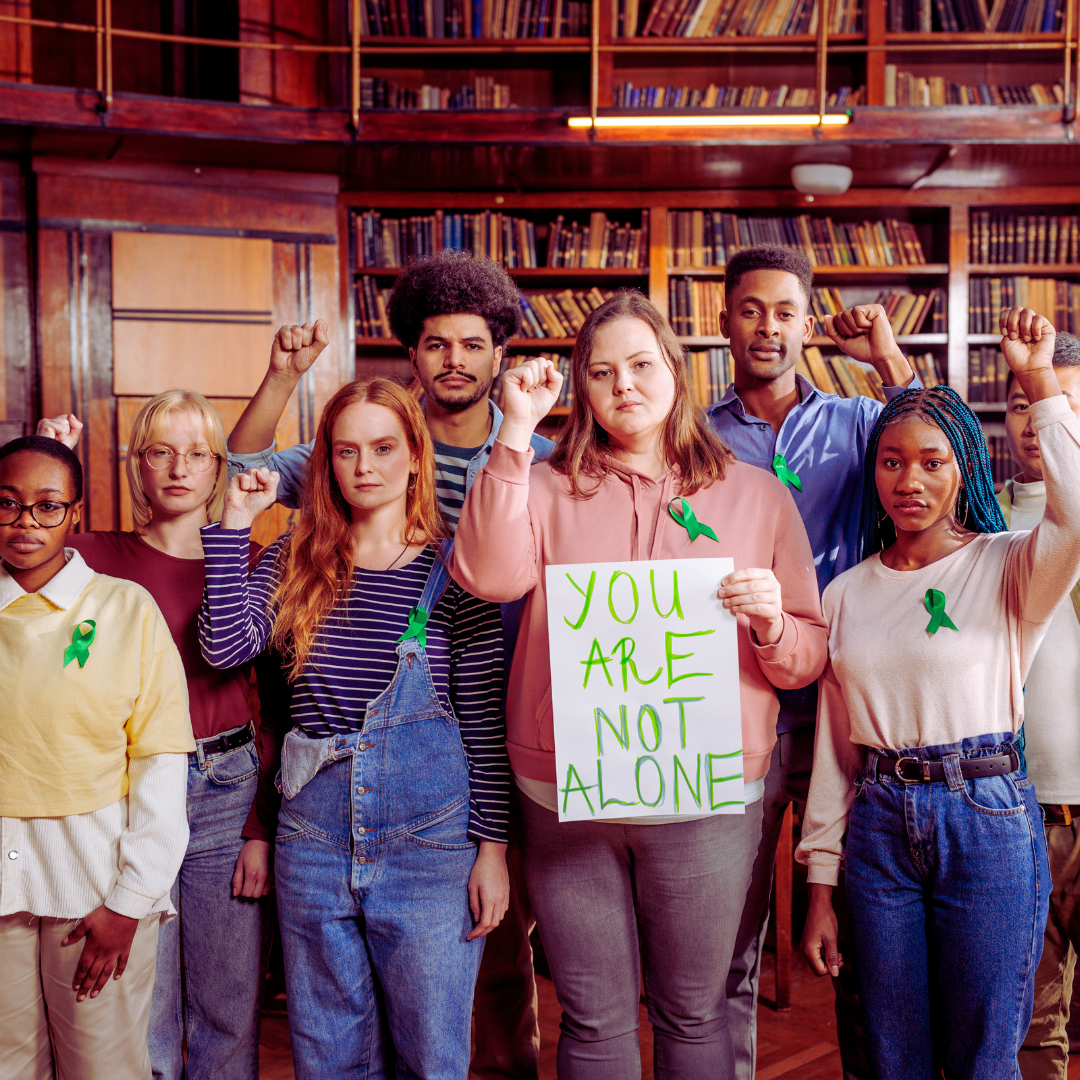
4. Promoting Mental Health Awareness
Social media platforms like Instagram and Facebook raise awareness about mental health problems and addiction recovery by fostering open discussions and launching campaigns.
These efforts reduce stigma, promote understanding, and encourage people to seek help. The supportive environment nurtures personal growth and creates a culture of acceptance.
5. Online Therapy And Support Groups:
Social media enables access to virtual therapy sessions and online support groups, breaking barriers for individuals unable to attend in-person meetings.
These services provide convenience, flexibility, and a consistent support system, ensuring that anyone can receive the help they need to thrive in recovery.
6. Positive Reinforcement
Social media accounts promoting positivity, self-care, and wellness provide continuous reinforcement for those in recovery.
Individuals can share small milestones or progress updates, boosting self-esteem and celebrating victories. This positive feedback loop fosters confidence and inspires personal healing and growth commitment.
7. Building Healthy Habits
Social media content on mindfulness, exercise, and nutrition encourages individuals to adopt healthier lifestyles. These habits support physical and emotional well-being, which are crucial for recovery from social media and eating disorders. Individuals can effectively integrate these practices into their daily lives by following accounts emphasizing wellness.
8. Accountability
Social media fosters accountability by allowing individuals to share goals, progress, and updates with their networks. Publicly documenting their recovery journey encourages consistency, while positive feedback and encouragement from others motivate them to stay dedicated and continue working toward their personal goals.
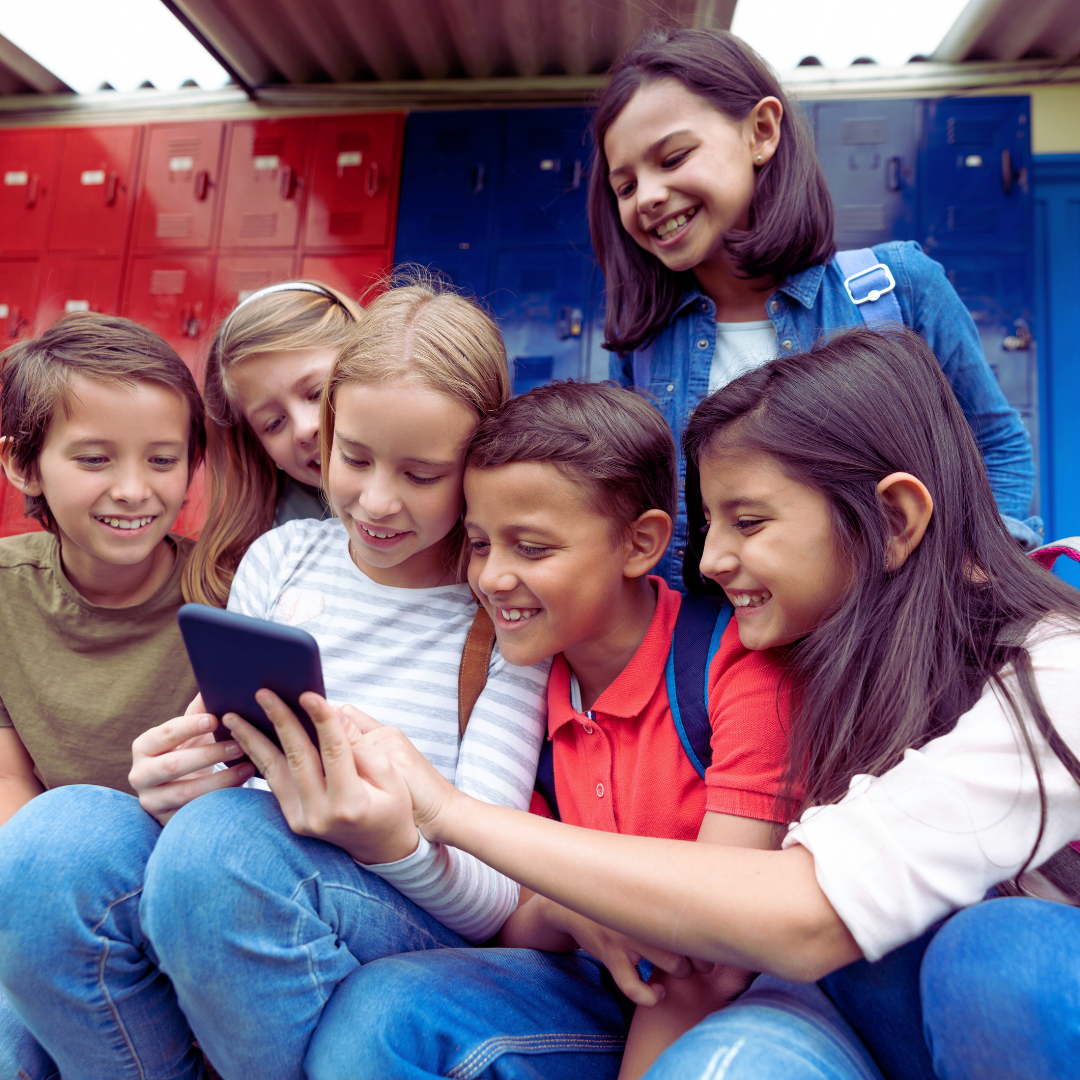
9. Educational Campaigns
Social media amplifies recovery-focused educational campaigns, such as webinars, workshops, and training sessions. These initiatives offer practical tools, coping mechanisms, and actionable advice.
By sharing valuable knowledge, these campaigns empower individuals to make informed decisions and sustain progress in their recovery journey.
10. Community Engagement
Connecting with recovery-focused communities on social media fosters meaningful relationships and mutual support. Individuals can exchange experiences, insights, and advice, creating a collective wisdom that benefits all members. This sense of community promotes shared growth, encouragement, and understanding throughout recovery.
FAQ
1. How Do You Maintain A Healthy Relationship With Friends And Family?
Answer: Maintain open communication, respect boundaries, show appreciation, be supportive, and spend quality time together. Prioritize empathy, honesty, and trust to strengthen connections with friends and family.
2. How Can We Maintain Healthy Relationships In Current Society?
Answer: Maintaining healthy relationships in today's society requires clear communication, mutual respect, and understanding.
Embrace technology for connection, practice active listening, set boundaries, prioritize mental well-being, and cultivate empathy and trust.
3. Why Is Social Media Bad For Relationships?
Answer: Social media can negatively impact relationships by fostering jealousy, reducing quality time, and increasing misunderstandings. Excessive use may lead to decreased relationship satisfaction and emotional well-being.
Conclusion
In conclusion, Social Media and Eating Disorders are closely intertwined, with platforms influencing body image and mental health.
While the dangers of unrealistic beauty standards are evident, social media also holds the potential to support recovery and promote body positivity.
By encouraging authenticity, fostering awareness, and prioritizing mental health, we can transform these platforms into safer, more inclusive spaces that empower individuals to embrace their unique selves.
I trust you enjoyed this article about Social Media And Eating Disorders. Please stay tuned for more articles. Take care!
JeannetteZ
Want to Learn How to Build Your Own Home-Based Online Business And Start Making Money Online From Your Comfortable Couch?
Try Wealthy Affiliate!
Your Opinion Is Important To Me
Do you have thoughts, ideas, or questions? I would love to hear from you. Please leave me your questions, experiences, remarks, and suggestions about Social Media And Eating Disorders in the comments below. You can also email me at Jeannette@WorkFromAnywhereInTheWorld.com.
Disclosure
This post may contain affiliate links. I earn from qualifying purchases as an Amazon Associate and other affiliate programs. Please read my full affiliate disclosure.
You may also enjoy the following articles:
Wealthy Affiliate Coupons For Premium Memberships
Wealthy Affiliate Review – Scam or Legit? The Truth Exposed
An Insider Wealthy Affiliate Review
How To Get Rid Of Social Media Addiction


